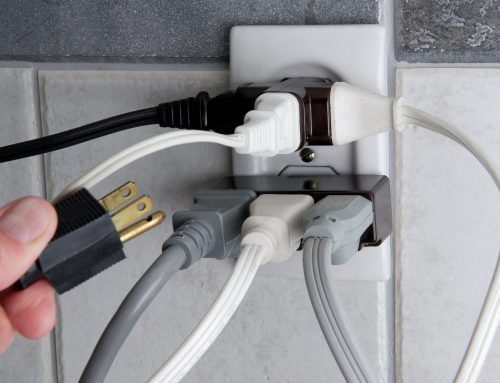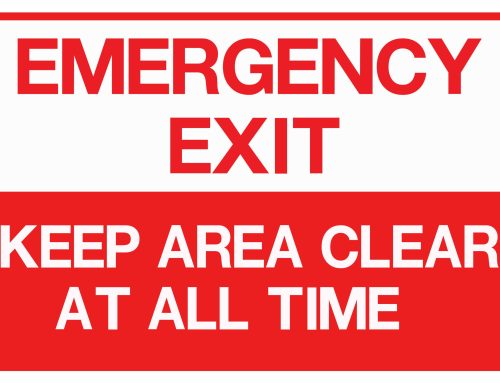Cooking is a common activity in workplaces, whether it’s in a restaurant, office kitchenette, or industrial setting. However, it also poses significant risks if not done safely. According to the National Fire Protection Association (NFPA), cooking equipment is a leading cause of workplace fires. To ensure the safety of employees and property, it’s crucial to follow NFPA standards and implement safety measures. Consider these essential tips for cooking safety in the workplace, referencing NFPA standards.
1. Install Adequate Fire Suppression Systems
The first line of defense against workplace fires is an effective fire suppression system. According to NFPA 96: Standard for Ventilation Control and Fire Protection of Commercial Cooking Operations, it is essential to have a well-maintained and properly functioning fire suppression system in commercial kitchens. Regular inspections and maintenance are key to ensuring that these systems are ready to respond in case of a fire.
2. Maintain Cleanliness
Keeping the cooking area clean is fundamental to preventing fires. Accumulated grease and food particles can easily ignite, so regular cleaning is essential. NFPA 96 outlines specific requirements for maintaining exhaust systems, hoods, and grease filters. Cleaning schedules should be established and adhered to, and professionals should be hired when necessary to ensure compliance.
3. Proper Equipment Use and Maintenance
Ensure that all cooking equipment is in good working condition. Regular maintenance and inspections, as outlined by NFPA 54: National Fuel Gas Code and NFPA 70: National Electrical Code, are vital to prevent equipment malfunctions that could lead to fires. Employees should also be trained in the proper use of equipment, including stovetops, ovens, and deep fryers, to minimize the risk of accidents.
4. Fire Extinguishers and Fire Safety Training
NFPA 10: Standard for Portable Fire Extinguishers provides guidance on the selection, placement, and maintenance of fire extinguishers in the workplace. Employees should be trained in how to use fire extinguishers effectively. Having readily accessible fire extinguishers and conducting regular fire drills can make a significant difference in minimizing the damage caused by a fire.
5. Preventing Grease Fires
Grease fires are a common hazard in commercial kitchens. Employees should be trained to handle these fires correctly. According to NFPA 96, a Class K fire extinguisher specifically designed for cooking oil fires should be available in the kitchen. Employees should never use water to extinguish a grease fire, as it can cause the flames to spread. Instead, they should use a fire blanket or a Class K fire extinguisher.
6. Fire-Resistant Kitchen Design
When designing a commercial kitchen, it’s essential to consider fire-resistant materials and construction. NFPA 1: Fire Code outlines requirements for fire-rated walls, ceilings, and floors in commercial kitchens. Proper ventilation and exhaust systems should also be designed to prevent the spread of fire and smoke.
7. Safe Cooking Practices
Employee training is crucial in promoting safe cooking practices. Employees should be educated on the risks associated with cooking equipment, and proper cooking techniques should be emphasized. Simple practices like turning pot handles away from the stove’s edge and using oven mitts can prevent burns and accidents.
8. Supervision and Monitoring
Supervision is key to ensuring safety in the workplace kitchen. Assign a responsible employee to oversee cooking operations, especially during busy periods. Implement monitoring systems, such as smoke detectors and heat sensors, to detect and respond to fire hazards promptly.
9. Emergency Procedures
Every workplace should have well-defined emergency procedures in place. Employees should know how to respond in case of a fire, including evacuation routes and assembly points. Regular fire drills can help ensure that everyone is familiar with these procedures.
10. Regular Inspections and Maintenance
Finally, compliance with NFPA standards requires regular inspections and maintenance of all fire safety equipment and systems. This includes fire extinguishers, fire alarms, sprinkler systems, and emergency lighting. Keeping these systems in optimal working condition is essential for a rapid and effective response to a fire emergency.
Fire Systems, Inc.
Cooking safety in the workplace is of paramount importance to prevent fires and ensure the well-being of employees and the preservation of property. By adhering to NFPA standards and implementing the tips outlined in this article, employers can significantly reduce the risk of workplace fires and create a safer environment for all. Prioritizing safety through training, maintenance, and preparedness is the key to a secure workplace kitchen. Let Fire Systems, Inc. help protect your facility against the dangers of cooking-related fires. Even if you don’t have a full kitchen, the risk of cooking related fires exists. We’re an all-services fire protection company that can customize a full fire protection plan for your facility, no matter the size or hazards you’re managing. Contact us today at 770-333-7979 or visit our website for a full list of our offerings and access to a free online estimate. We look forward to helping you.






